News
CBN gov’s claim on Buhari printing N35tn not correct – ex-President’s aide
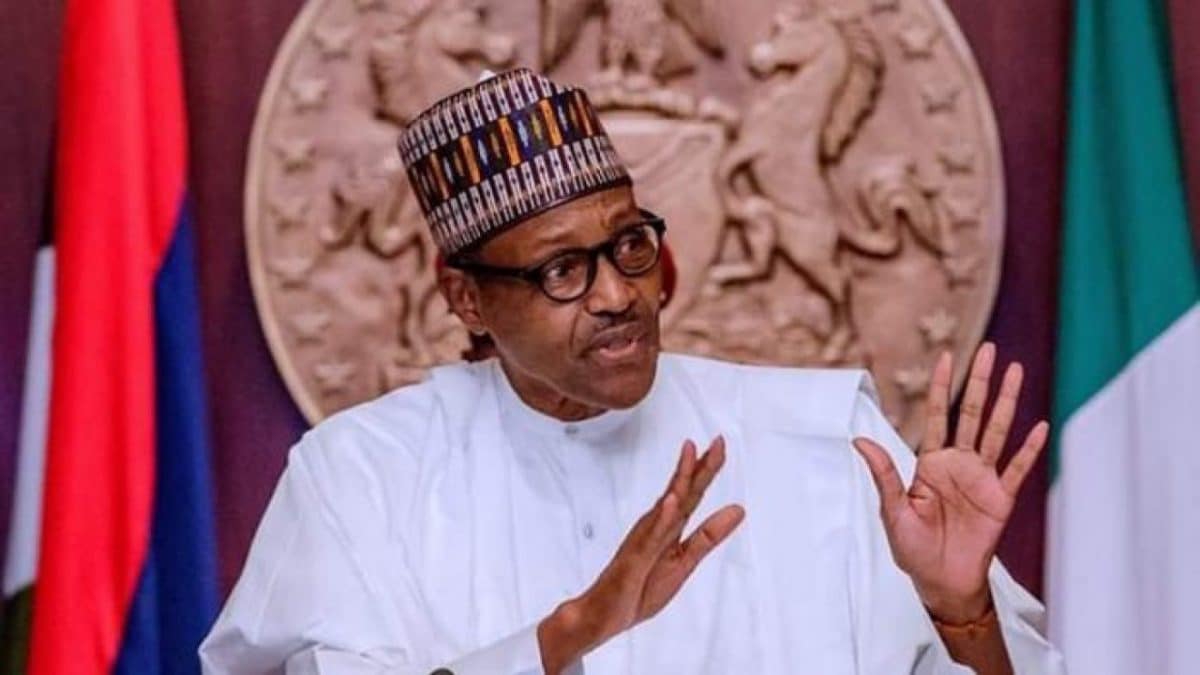
CBN gov’s claim on Buhari printing N35tn not correct – ex-President’s aide
A former aide to President Muhammadu Buhari has pushed back against claims made by the Central Bank of Nigeria (CBN) Governor, Yemi Cardoso, regarding the mismanagement of the economy during Buhari’s administration, particularly between 2015 and 2023.
The aide challenged the CBN governor’s assertion that N35 trillion was printed during Buhari’s tenure, clarifying that the actual figure was closer to N7.5 trillion.
The dispute arose following the release of new data by the CBN, which showed a significant increase in Nigeria’s money supply, rising by 14.22% to N107.1 trillion between January and August 2024, compared to N93.77 trillion in January of the same year.
At a recent press briefing held after the September meeting of the Monetary Policy Committee (MPC) in Abuja, Cardoso had stated, “In 2015, the money supply was about N19 trillion. By 2023, it had surged to N54 trillion. That’s a huge increase, and a substantial portion of that came through the Ways and Means financing.”
Cardoso explained that the N35 trillion printed over the period had resulted in excessive liquidity, with too much money chasing the same volume of goods, contributing to inflationary pressures.
The “Ways and Means” mechanism refers to the process by which the CBN lends money to the government. Cardoso noted that this type of funding was not supported by corresponding economic growth, leading to an oversupply of naira in the economy, which diminished its value.
However, Buhari’s aide, who chose to remain anonymous due to lack of authorization to speak on the matter, refuted Cardoso’s figures. The aide contended that during the eight-year period, the CBN had provided only N7.5 trillion in Ways and Means advances.
“The numbers being cited are simply not correct. When the acting Governor of the Central Bank was in office, the National Assembly summoned the CBN to provide accurate figures. The total sum of Ways and Means advances during Buhari’s tenure did not exceed N7.5 trillion,” he said.
READ ALSO:
- Details of observers damning reports on Edo gov election
- 13 Usmanu Danfodio varsity students arrested for internet fraud
- NSCDC officer supplying drugs, ammunition to bandits dismissed
Citing a report from The Cable, the aide emphasized that the National Assembly had been expected to release a comprehensive report on the matter but had not yet done so. “The last we heard, they promised to release the report in September. The central bank’s official records support our figure of N7.5 trillion,” he added.
To back his claim, the aide referenced a letter addressed to the Senate Majority Leader by the CBN on January 16, 2023. The letter, which responded to inquiries from the Senate’s Special Committee on Ways and Means, detailed the figures involved.
The letter stated, “The balance of the Treasury Sub-Treasury Account as of December 19, 2022, was -22,719,7033,774,306.90. This account is the designated account for granting overdraft facilities to the Federal Government. We have attached a summary page that details the Ways and Means granted between 2015 and 2022 as Appendix 3.”
The Buhari administration grappled with numerous fiscal challenges between 2015 and 2023, including a drop in global oil prices and a reduction in oil revenue. To manage these difficulties, the government increasingly relied on the CBN to fund its expenditures, printing trillions of naira in the process.
Both Cardoso and Finance Minister Wale Edun have attributed the inflationary pressures and the weakened naira to this money printing, which was not accompanied by productivity growth, making basic goods and services more expensive for Nigerians.
Efforts to reach the CBN and other government officials for a response to the aide’s remarks were unsuccessful as of the time of filing this report.
Surge in Money Supply
Meanwhile, the CBN’s recent figures show that the money supply in the economy has surged by 14.22% from N93.77 trillion in January to N107.1 trillion in August 2024. Month-on-month, there was a 0.75% increase, rising from N106.3 trillion in July, while year-on-year, the supply increased by 65% from N64.8 trillion in August 2023.
Money supply (M2), which includes currency outside banks, narrow money, demand deposits, and quasi-money, reflects the growing liquidity in the Nigerian economy. In August 2024, currency outside banks was reported at N3.8 trillion, demand deposits at N31 trillion, and quasi-money surged to N72.2 trillion.
This increase in liquidity presents a challenge for the CBN’s Monetary Policy Committee as it seeks to balance economic growth with inflation control.
CBN gov’s claim on Buhari printing N35tn not correct – ex-President’s aide
(PUNCH)
News
World Bank approves Tinubu’s $632m loan request

World Bank approves Tinubu’s $632m loan request
The World Bank is poised to approve $632 million in new loans to Nigeria today (Monday), amid growing concerns over the country’s expanding debt profile.
The loans are intended to support important sectors such as nutrition enhancement and quality basic education.
According to data obtained from the World Bank’s website on Sunday, the two loans scheduled to be approved today are $80 million for the Accelerating Nutrition Results in Nigeria 2.0 initiative and $552 million for the HOPE for Quality Basic Education for All programme.
Both projects are now in the negotiating phase and are likely to gain final clearance later today.
These new loans are part of the World Bank’s overall strategy to support Nigeria’s development agenda, which focuses on healthcare, education, and community resilience.
The loans will support the government’s efforts to improve nutrition and education for Nigerian children.
Additionally, the World Bank approved a $500 million loan for Nigeria’s Community Action for Resilience and Economic Stimulus Programme on March 28, 2025, a significant step towards addressing the country’s economic challenges through expanded access.
The initiative, formally known as the NIGERIA: Community Action (for) Resilience and Economic Stimulus Programme, is intended to give critical support to households impacted by economic downturns while also strengthening community resilience.
The initiative focuses on vulnerable populations, providing assistance to households and small companies to help them cope with economic difficulties.
READ ALSO:
- Okada rider allegedly stabbed to death by wife over money
- Police rescue two persons abducted in Lagos
- Miyetti Allah accuses Benue community of poisoning 20 cows
The loan clearance is likely to considerably boost Nigeria’s efforts to revive the economy through grassroots backing, especially given current issues such as inflation and high living costs.
The stimulus plan will prioritise enhancing food security and developing economic possibilities for the populations most affected by recent economic changes.
This decision came after a delay in distributing funds for a previous loan aimed at poor and vulnerable Nigerians.
Further investigation by The PUNCH revealed that the World Bank disbursed around $315 million to Nigeria from the $800 million allocated for the National Social Safety-net Program Scale Up.
Nigeria is yet to receive further funding from the World Bank for this loan project, which was approved in December 2021. The delay in grant release is most likely due to fraud detected under the initiative.
In honour of the 2023 International Day for the Eradication of Poverty, President Bola Tinubu unveiled a social safety net programme that will distribute N25,000 to 15 million households over the course of three months.
The Federal Ministry of Humanitarian Affairs and Poverty Alleviation was responsible for managing the $800 million World Bank loan initiative.
However, due to allegations of embezzlement, the federal government was forced to stop the cash transfer program for further investigation and reform.
Betta Edu, a former humanitarian minister, was previously suspended for misappropriating N585 million set aside for palliative care distribution.
READ ALSO:
- Wike’s aide slams Atiku, says it’s too late to buy integrity
- Reps Committee recovers N21.4bn from four oil companies
- West African juntas impose levy on imported goods ECOWAS nations
Furthermore, Sadiya Umar-Farouq, Edu’s predecessor, was under investigation by the EFCC. The former minister is being investigated for allegedly laundering N37.1 billion during her stint as minister.
The World Bank also imposed sanctions on people and businesses discovered to be engaging in fraud under the initiatives.
According to the World Bank’s official website, this will bring Nigeria’s total approved loans to $9.25 billion over three years, indicating a growing reliance on multilateral funding to support critical sectors of the economy such as infrastructure, healthcare, education, and financial resilience.
A review of Nigeria’s World Bank loan approvals since 2023, under President Bola Tinubu’s government, reveals a huge rise in funding commitments.
In 2023, the World Bank approved $2.7 billion in loans for renewable energy, women’s empowerment, education, and the power sector. In 2024, funding approvals totalled $4.32 billion for various projects.
This increase was largely due to Nigeria’s growing need for financial assistance to stabilise the economy amid fiscal pressures and rising public debt.
Under President Bola Tinubu’s administration, the World Bank granted around 11 different credit projects for Nigeria.
In less than two years, the federal government has acquired loans from the World Bank totalling $7.45 billion, raising concerns about the mounting debt burden. According to data from the Debt Management Office, the World Bank’s portion of Nigeria’s external debt is $17.32 billion as of the third quarter of 2024.
The International Development Association is owing the majority of this debt, which amounts to $16.84 billion, or 39.14 per cent of Nigeria’s total external debt.
The International Bank for Reconstruction and Development, another World Bank subsidiary, is owing $485.08 million, or 1.13 per cent.
While the planned World Bank loans may give much-needed budgetary relief, concerns persist about the country’s mounting debt burden.
According to recent data from the Central Bank of Nigeria, the country has spent $5.47 billion servicing external debt in the last 14 months, underscoring the strain on its foreign reserves.
World Bank approves Tinubu’s $632m loan request
News
Investigation of wanted businesswoman Achimugu not linked with Atiku, Sanwo-Olu – EFCC
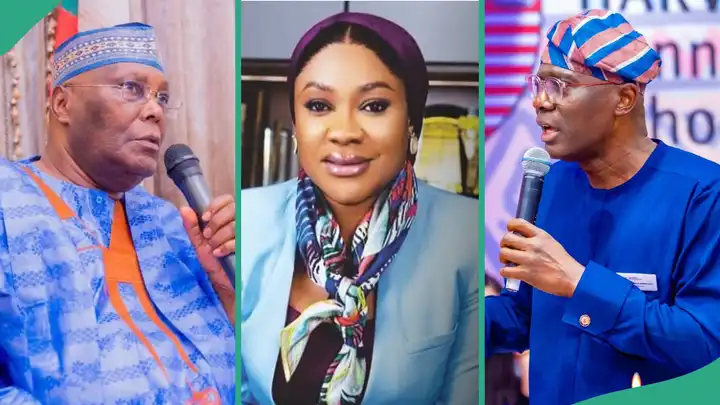
Investigation of wanted businesswoman Achimugu not linked with Atiku, Sanwo-Olu – EFCC
The Economic and Financial Crimes Commission has reacted to media reports linking its investigations of Ms. Aisha Achimugu with political undercurrents involving former Vice President Atiku Abubakar and Lagos State Governor, Babajide Sanwo-Olu
This is contained in a statement by the commission on Friday night.
The statement read, “We wish to state unequivocally that the investigations of Achimugu have no correlation of any kind with the two political actors. She is being investigated for alleged criminal conspiracy and money laundering and has since been declared Wanted by the Commission”.
The EFCC started investigating Achimugu in 2022. Although she approached the court to obtain an injunction restraining the Commission from arresting, investigating, inviting or detaining her for any alleged criminal act, the injunction was challenged and vacated on Wednesday, February 19, 2025 by a Federal High Court sitting in Abuja.
The court ruled that “…no court has the power to stop the investigative powers of the Police or EFCC or any agency established under our laws to investigate crimes when there is reasonable suspicion of commission of a crime or ample evidence of commission of an offence by a suspect.”
“The court further upheld the interim order of forfeiture of assets of Achimugu suspected to be proceeds of crime, dismissing her suit against it as lacking merit .
“The foregoing clearly establishes that the EFCC’s case against her has no immediate or remote nexus with any politician or any veiled or open reference to any political engagement or transaction.
“The EFCC is non-partisan and non-sectarian. We enjoin the public to continue to keep faith with the professionalism of the Commission without imputing any extraneous consideration to its works.”
News
Why governors’ forum is silent on Rivers emergency, by DG
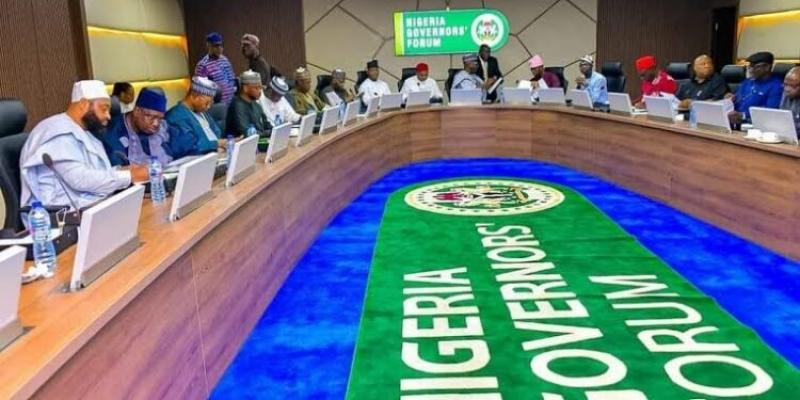
Why governors’ forum is silent on Rivers emergency, by DG
The Nigeria Governors’ Forum (NGF) yesterday attributed its neutral position on the recent declaration of a state of emergency in Rivers State to the need to steer clear of taking positions that may alienate members with varying political interests.
Taking positions on contentious partisan issues, the NGF said, would not augur well for it, especially in view of its past experience in fundamental division.
Notwithstanding, the declaration of the state of emergency by President Bola Tinubu yesterday generated more kudos and knocks from across the country.
Special Adviser to the President on Senate Matters, Senator Basheer Lado, said the action of the president was meant to ensure protection of lives and restoration of law and order in the state, while the President’s Special Adviser on Media and Public Communications, Sunday Dare, said his principal was required to “avert needless harm and destruction .”
National Publicity Secretary of the ruling All Progressives Congress (APC), Felix Morka, said Tinubu, by his action, cleared what had manifested as a constitutional crisis in Rivers state.
But former President Goodluck Jonathan saw it from a different perspective.
READ ALSO:
- Senate didn’t get 2\3 majority for Tinubu emergency rule in Rivers –Tambuwal
- FG destroys another 200 containers of expired drugs
- Rivers court bars woman from answering ex-husband’s name
He described “abuse of office and power by the three arms of government in the country“ as a dent on Nigeria’s image.
The NGF, in a statement by its Director General Abdulateef Shittu, said it is essentially “an umbrella body for sub-national governments to promote unified policy positions and collaborate with relevant stakeholders in pursuit of sustainable socio-economic growth and the well-being of the people.”
It added: “As a technical and policy hub comprising governors elected on different platforms, the body elects to steer clear of taking positions that may alienate members with varying political interests.
“In whatever language it is written, taking positions on contentious partisan issues would mean a poor sense of history — just a few years after the forum survived a fundamental division following political differences among its members.
“Regardless, the Forum is reputed for its bold positions on governance and general policy matters of profound consequences, such as wages, taxes, education and universal healthcare, among others.”
It asked for “the understanding of the public and the media, confident that appropriate platforms and crisis management mechanisms would take care of any such issues.”
Why governors’ forum is silent on Rivers emergency, by DG
-
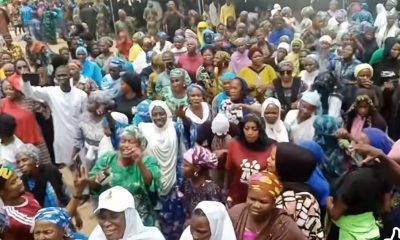
 metro2 days ago
metro2 days agoBREAKING: Senator Natasha defies restrictions, arrives homecoming rally by helicopter [VIDEO]
-
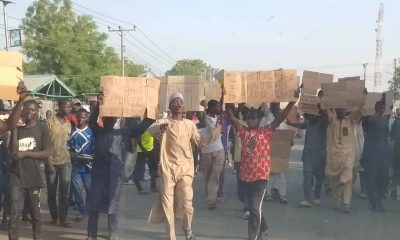
 metro2 days ago
metro2 days agoUromi: Edo residents flee towns over likely reprisal attack, arrest
-

 metro2 days ago
metro2 days agoBreaking: ‘Cancel your homecoming’ — Police tell Senator Natasha
-
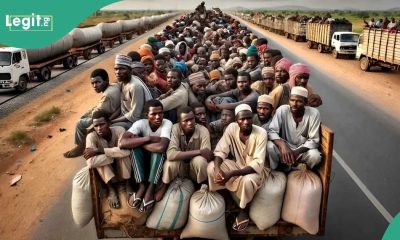
 metro3 days ago
metro3 days agoHow they murdered my Kano-bound passengers in Edo
-

 metro1 day ago
metro1 day agoBreaking: Tinubu sacks Kyari, appoints Ojulari as new NNPCL GCEO
-
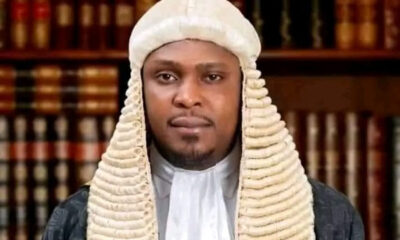
 metro3 days ago
metro3 days ago‘I was offered N5bn bribe to impeach Fubara’
-
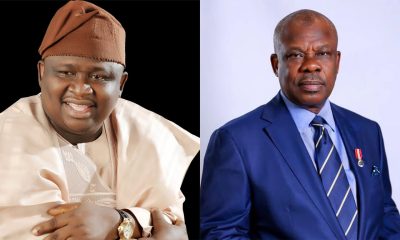
 metro2 days ago
metro2 days agoAmosun, Adeola engage in verbal attack over project diversion allegation
-

 metro3 days ago
metro3 days agoKano Gov Yusuf, Sanusi linked to Eid killings







